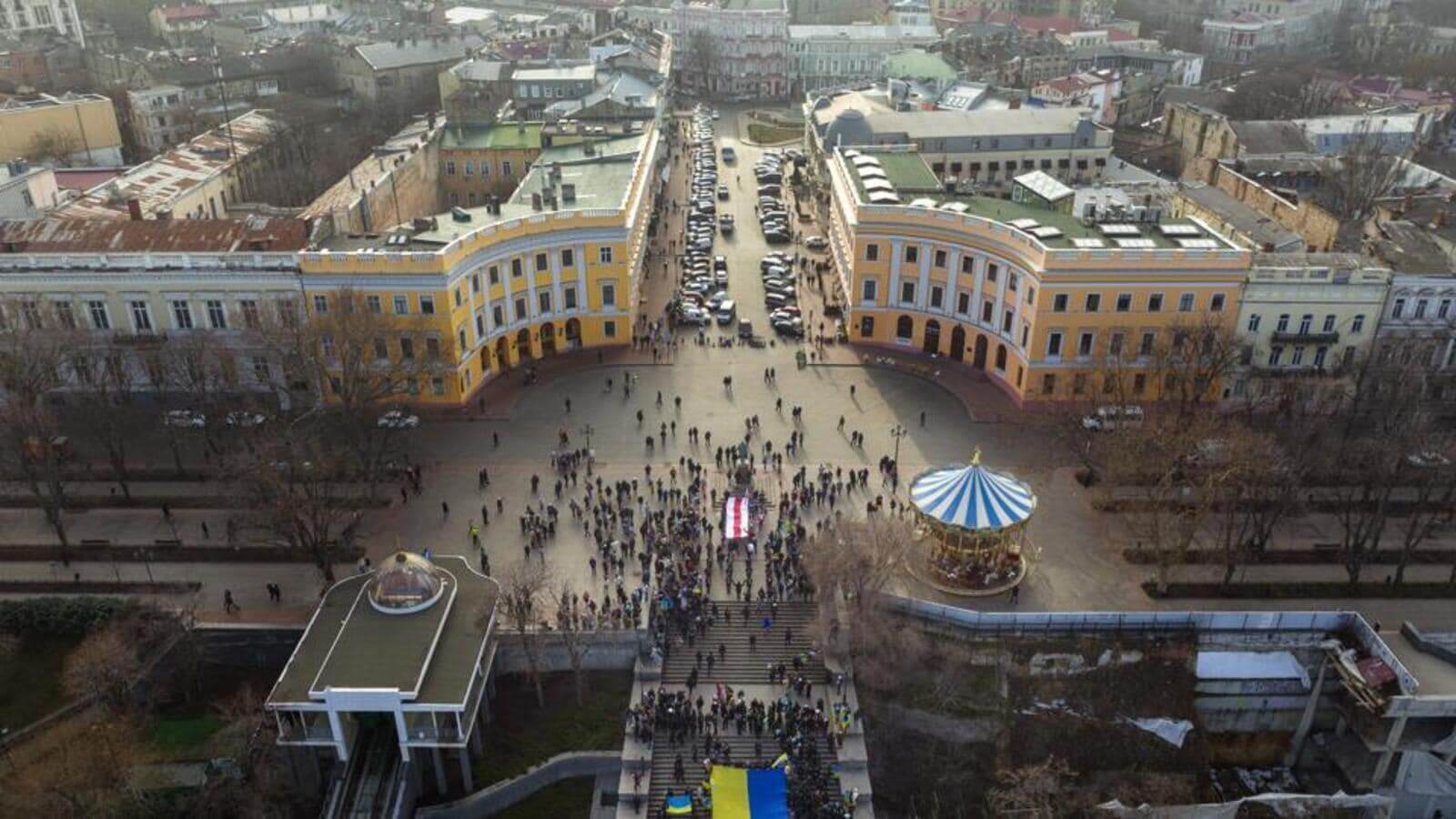In keeping with its historic policy of non-alignment, India has refrained from joining its Western allies in criticising Russia’s military build-up along the Ukrainian border. Nevertheless, it has used its platform at several international forums to express support for dialogue and call for the “de-escalation of tensions” between the two neighbouring nations to ensure peace in the region.
While military tensions have been escalating since November, India made its first official comments on the Russia-Ukraine conflict on January 28, when the External Affairs Ministry called for a “peaceful resolution” of the matter “through sustained diplomatic efforts” that protect “long-term peace and stability in the region and beyond.”
However, during a vote in the United Nations Security Council (UNSC) on January 31— of which India is currently a non-permanent member—India, alongside Kenya and Gabon, abstained from voting on the possibility of an open meeting about the Russia-Ukraine issue. Likewise, during the UNSC’s meeting on February 17, India’s permanent representative to the UN, T.S. Tirumurti, said that all sides should refrain from taking “any steps that increase tensions.” The Russian embassy in New Delhi applauded India’s “balanced, principled, and independent” position.
On February 22, the UNSC convened for an emergency meeting on the issue after Russian President Vladimir Putin recognised the independence of the breakaway territories of Donetsk and Luhansk. Once again, however, India reiterated its support for a diplomatic solution and urged “restraint on all sides.” Tirumurti highlighted the importance of “intense efforts” to resolve tensions and proposed the use of contact groups and meetings in the Normandy Format, which involves Germany, Russia, Ukraine, and France. He also called for “greater efforts” to fully implement the Minsk Agreements, perhaps in a nod to Russia’s claims that Ukraine has been violating the agreements.
📺Watch: Permanent Representative @AmbTSTirumurti speak at the #UNSC Meeting on #Ukraine ⤵️#IndiainUNSC @MEAIndia @UNDPPA pic.twitter.com/W1ROBvZ6Xt
— India at UN, NY (@IndiaUNNewYork) February 22, 2022
These sentiments were echoed by Indian External Affairs Minister S. Jaishankar during his visit to Europe, during which he said heightened tensions in Ukraine are “the result of a complex chain of circumstances” and reiterated India’s support for a “diplomatic solution.” While addressing the Ministerial Forum for Cooperation in the Indo-Pacific on Tuesday, he said, “It is essential that greater power and stronger capabilities lead to responsibility and restraint. This means, above all, respect for international law, territorial integrity and sovereignty.”
India’s non-commital stance has somewhat frustrated Washington, which has sought to secure the critical non-NATO ally’s support against Russian military build-up around Ukraine. For instance, during a meeting of the foreign ministers’ meeting of the Quad—comprising India, Australia, Japan, and the US—American Secretary of State Antony Blinken argued that Russia’s aggression could fuel a dangerous trend of other countries redefining international borders.
However, while it has repeatedly expressed deep “concern” about the ongoing tensions, India has refrained from condemning NATO’s or Russia’s actions. For India, both sides are critical allies as New Delhi shares close trade, defence, and diplomatic relations with both the Western alliance and Russia.
That being said, India has acknowledged the volatility of the situation. Amid the looming threat of Ukraine becoming a battleground for the North Atlantic Treaty Organization (NATO) and Russia, India has asked its citizens— including students, family members of Embassy officials, and other citizens in non-essential positions—to leave the Eastern European country expeditiously. The External Affairs Ministry has also set up a control room to provide assistance and information on the changing situation in Ukraine.
ADVISORY TO INDIAN STUDENTS IN UKRAINE.@MEAIndia @PIB_India @IndianDiplomacy @DDNewslive @PTI_News @IndiainUkraine pic.twitter.com/7pzFndaJpl
— India in Ukraine (@IndiainUkraine) February 22, 2022
Indians account for the largest group of international students in Ukraine, with over 18,000 enrolled in graduate universities to pursue engineering and medicine degrees. Several Indian students have raised concerns about their safety on Twitter and highlighted the surge in airfares for flights back home.
To this end, over the past week, India has stepped up its evacuation plans to ensure the safe return of its citizens; all travel restrictions, such as limitations on the number of flights and seats per sector, were lifted for flights from Ukraine on February 17. Consequently, 240 Indians were brought back home from Kyiv on February 22. Air India will be operating two more repatriation flights from Kyiv to New Delhi between February 24 and February 26; commercial flights between the two countries will continue to operate as well.

